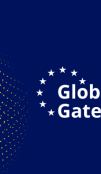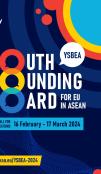2023 Annual Report on Human Rights and Democracy in the World - Update on Vietnam
1. Overview of the human rights and democracy situation:
While Viet Nam assumed its seat on the UN Human Rights Council for the period 2023-2025, significant positive developments in the area of human rights were few in 2023. The space for civil society shrank further, demonstrated by harassment, arbitrary arrests and convictions of activists and bloggers. Environmental activists and experts remained a prime target: human rights lawyers defending them were accused of abusing democratic freedoms for which the Penal Code foresees severe sanctions. Several of them fled the country. Ethnic minorities and religious groups continued to be victims of harassment by state authorities.
In terms of press freedom, Viet Nam was ranked 178th out of 180 countries in the Reporters Without Borders 2023 World Press Freedom Index, falling from 174th position in 2022. A cybersecurity decree (53/2022/ND-CP) issued in 2022 continued to further erode freedom of expression through the authorisation to access user data under vaguely defined articles related to national security and public order. In the field of labour rights, the ratification of ILO Convention 87 on freedom of association and the adoption of a decree on workers’ representative organisations and collective bargaining is still pending.
Executions continued with no exact figures on total numbers. In 29 cases, death penalties were reduced to life sentences through a decision signed by the President. On the positive side, a new gender transition law facilitating transgender people’s access to a legal gender change was proposed to the National Assembly which agreed to include this in the agenda for discussion at the 8th session in October 2024. The UN Special Rapporteur on the Right to Development visited in November 2023, the first Special Rapporteur to visit Viet Nam since 2017. He acknowledged Viet Nam's achievements in economic growth and poverty reduction, but stressed the need for greater public participation in the country's development processes, especially by marginalised groups.
2. EU action - key focus areas:
The EU focussed on access to information and freedom of expression; freedom of religion and belief; civil society and participative democracy; equal rights and diversity (gender, people with disabilities, LGBTI); rights of the youth and child; fair administration of justice and the rule of law, including the abolition of the death penalty, compliance with international human rights law and effective implementation of human rights mechanisms. The EU was actively engaged in actions aimed at supporting human rights activists, requesting the possibility to observe trials of human rights defenders and insisting on access to legal aid, medical support and family visits for prisoners. The protection of labour rights, an EU priority and an obligation under the EU-Vietnam Free Trade Agreement, was addressed on several occasions. The EU advocated and provided technical assistance for the revision of the labour code, and the ratification of all core ILO Conventions and their implementation.
3. EU bilateral political engagement:
Human rights were regularly mainstreamed in bilateral discussions with the government. The EU-Vietnam Human Rights Dialogue in June and the EU-Vietnam Sub-Committee on Good Governance, Rule of Law and Human Rights under the Participation and Cooperation Agreement in May addressed Viet Nam's action plan on the accepted recommendations under the third cycle of the Universal Periodic Review focussing on issues of concern. The EU gave particular attention to protecting and empowering individuals: the release of all persons detained for exercising their freedom of expression (both online and offline), the situation of human rights defenders, the tightening space and working environment for CSOs and the abolition of the death penalty. The EU together with EU Member States arranged social media campaigns, activities and events to promote human rights, including on the occasion of the World Day against the Death Penalty, International Human Rights Day and International Women’s Day. Member States also arranged events on gender equality, LGBTI rights and the situation for civil society, with the aim of helping to build a more resilient and inclusive society. Ahead of two high-profile death penalty cases, local EU statements were issued; a statement by the HRVP Spokesperson was published on the conviction of an environmental activist.
4. EU financial engagement:
With the Thematic Programme for Human Rights and Democracy and the CSO budget line, civil society actions were supported through grants in various domains: gender equality and prevention of gender-based violence; ethnic minority rights (including land rights); children's rights; business and human rights; civil society empowerment; environmental rights; promotion of information on human rights issues online; freedom of expression; rights of migrants, returnees and informal workers; response to COVID 19 and cultural rights. Through an EU-funded action implemented by UNDP support was provided to promote fair trials, the implementation of the Convention against Torture and the abolition of the death penalty. A partnership with the Judicial Academy was established to train lawyers and judges on death penalty abolition, and to raise awareness on the issue among students, academics and non-state actors.
The partnership built between the EU Delegation, Member States, the Ministry of Justice and the Supreme Court in the context of the “EU Justice and Legal Empowerment Programme in Vietnam” (EU JULE) supported the implementation of ICCPR and other treaties such as the Convention against Torture, the Convention on the Rights of the Child and the Convention on the Rights of People with Disabilities. EU JULE also included a component supporting non state-actor initiatives to increase access to justice. The EU Delegation was the main sponsor of the 2023 Hanoi Pride Week (18-24 September) which featured 23 community events, such as art spaces, advocacy efforts and health discussions contributing to enhanced visibility and awareness of LGBTI issues in the media and the public. The EU Delegation also supported the development of a second season of “My Best Gay Friend”, a YouTube series aiming to reduce discriminatory attitudes against LGBTI communities.
5. Multilateral context:
In terms of cooperation in multilateral fora, the EU maintained a regular dialogue with Viet Nam on international human rights issues in the context of the 78th UN General Assembly. Viet Nam continued to refrain from condemning the Russian aggression against Ukraine and abstained from all UN votes on the issue, apart from the vote to suspend Russia’s membership of the Human Rights Council where it voted against. In November 2023, Viet Nam presented the first draft of its national report for the fourth cycle of the Universal Periodic Review. According to the Ministry for Foreign Affairs, Viet Nam implemented 209 recommendations (86.7%) with considerable results, while for 30 recommendations (12.4%) implementation was ongoing. Two recommendations (0.9%) were considered for implementation.





